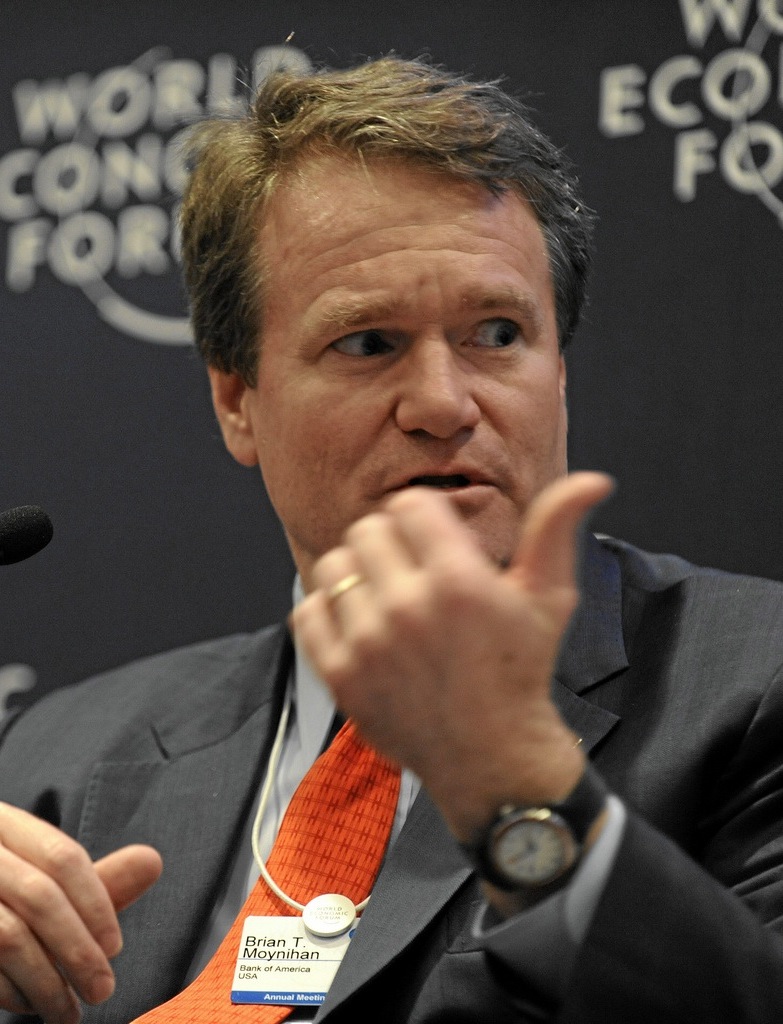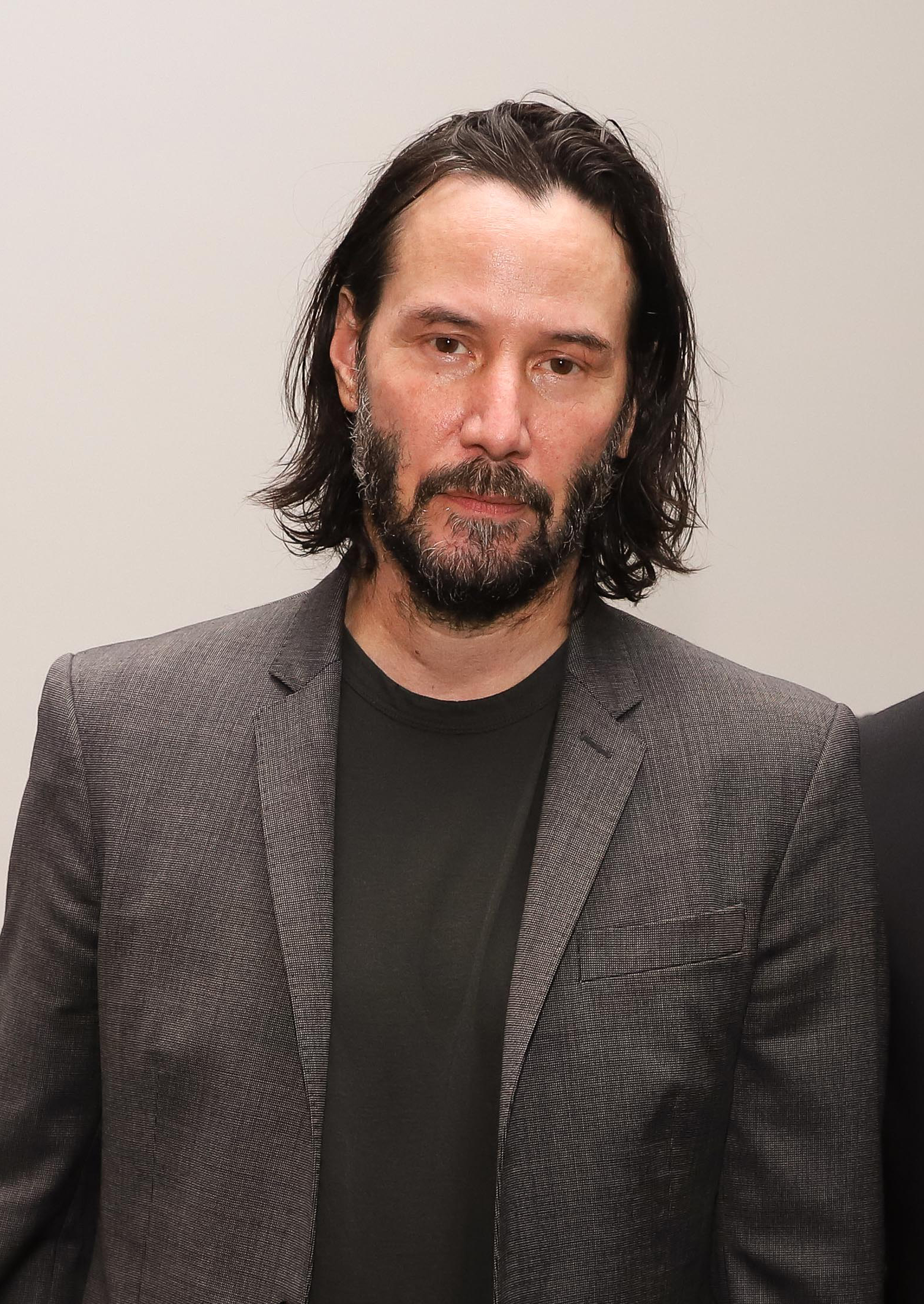
There are very few actors who command the kind of universal affection and respect that Keanu Reeves does. For over four decades, he has graced our screens, evolving from a quirky teen idol into one of Hollywood’s most recognizable and beloved figures. His journey is not just a testament to his acting prowess, but also to an enigmatic charm and a remarkable resilience that has seen him navigate the ever-shifting tides of the entertainment industry with grace and humility.
From his unforgettable roles in action blockbusters to his quieter, more introspective performances, Reeves has consistently captivated audiences worldwide. His amiable public image, combined with a genuine philanthropic spirit, has endeared him to millions, making him more than just a movie star – he’s a cultural icon whose personal story is as compelling as any film script. His unique blend of stoicism and warmth has created a persona that is both aspirational and incredibly relatable.
Today, we’re taking an in-depth look at the path that shaped Keanu Reeves, tracing his origins from a multicultural upbringing to his pivotal early career choices. We’ll explore the foundational experiences that set the stage for his extraordinary life in the spotlight, highlighting the moments and decisions that defined the early chapters of his legendary career before he became the global phenomenon we know today.

1. **Early Life and Diverse Heritage**
Keanu Charles Reeves was born in the vibrant city of Beirut, Lebanon, on September 2, 1964. His mother, Patricia (née Taylor), was an English costume designer and performer, while his American father, Samuel Nowlin Reeves Jr., hailed from Hawaii and possessed a rich heritage of Native Hawaiian, Chinese, English, and Portuguese descent. This fascinating blend of cultures profoundly influenced his upbringing, creating a unique background that would subtly shape his perspective and career.
Sadly, his father abandoned the family when Keanu was just three years old. After his parents divorced in 1966, his mother embarked on a journey that took the family to Sydney, Australia, and then to New York City. In 1970, she married Paul Aaron, a Broadway and Hollywood director, and the couple subsequently moved to Toronto, Canada, before divorcing in 1971. Keanu and his sisters primarily grew up in Toronto’s Yorkville neighborhood, often cared for by a nanny, experiencing a childhood marked by movement and adaptation.
Reeves’s early life was also shaped by exposure to diverse influences, from British comedy shows like ‘The Two Ronnies’ that his mother introduced him to, to the Chinese art, furniture, and cuisine that were a part of his home due to his paternal grandmother’s heritage. He described himself as a “private kid,” and his academic journey saw him attend four different high schools. He was famously expelled from the Etobicoke School of the Arts, admitting he was “just a little too rambunctious and shot my mouth off once too often.” He also openly shared his struggles with dyslexia, stating, “Because I had trouble reading, I wasn’t a good student.”
Beyond academics, Reeves was a successful ice hockey goalkeeper at De La Salle College, nurturing aspirations to play for the Canadian Olympic team and even considered an OHL prospect. However, a career-ending injury shifted his focus. It was at the age of fifteen that he made the pivotal decision to become an actor, eventually dropping out of high school at seventeen. Three years later, he obtained a green card through his American stepfather and moved to Los Angeles, though he has always maintained only Canadian citizenship, a quiet testament to his roots.
Read more about: The Road Ahead: Ranking 12 Convertibles Built to Endure 180,000 Kilometers of Open-Air Thrills
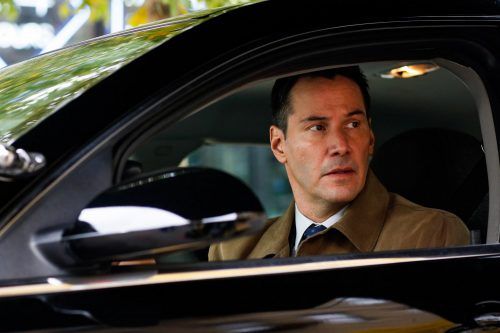
2. **From Canadian TV to Hollywood’s Horizon (1984–1990)**
Keanu Reeves’s professional journey in entertainment began in Canada. In 1984, he served as a correspondent for the Canadian Broadcasting Corporation (CBC) youth television program ‘Going Great’. That same year, he made his acting debut in an episode of the television series ‘Hangin’ In’, marking his first foray into scripted performance. His early stage work included playing Mercutio in a 1985 production of ‘Romeo and Juliet’ at the Leah Posluns Theatre in North York, Ontario, and a role in Brad Fraser’s cult hit ‘Wolfboy’ in Toronto, demonstrating an early commitment to his craft across different mediums.
Prior to these acting roles, Reeves also appeared in a Coca-Cola commercial in 1983 and featured in the National Film Board of Canada (NFB) coming-of-age short film ‘One Step Away’. Interestingly, during this period, his agents advised him to adopt a different name, suggesting his first name was “too ethnic.” He briefly used “K. C.” or “Casey” Reeves for auditions before wisely reverting to Keanu, a decision that allowed his unique identity to shine through.
His first motion picture appearances came in 1986, starting with Peter Markle’s ‘Youngblood’, where he fittingly played a goalkeeper, and the low-budget romantic drama ‘Flying’. However, it was his casting as Matt in ‘River’s Edge’, a crime drama loosely based on a real murder case, that garnered significant attention. The film premiered at the Toronto International Film Festival in 1986 to a largely positive response. Janet Maslin of The New York Times lauded the performances of the young cast as “natural and credible,” specifically describing Reeves as “affecting and sympathetic,” signaling his emerging talent.
Throughout 1988, Reeves starred in several dramas aimed at teen audiences, including the lead in ‘The Night Before’ opposite Lori Loughlin, ‘The Prince of Pennsylvania’, and ‘Permanent Record’. While the latter received mixed reviews, Variety magazine praised Reeves’s performance, noting it “opens up nicely as the drama progresses.” He also secured a supporting role in the critically acclaimed ‘Dangerous Liaisons’, which earned seven Academy Award nominations, winning three. By 1989, he starred in ‘Bill & Ted’s Excellent Adventure’, a role that would become synonymous with his early career. The film, where he portrayed a slacker traveling through time, was well-received by critics, grossing $40.5 million worldwide, with Rotten Tomatoes praising Reeves and co-star Alex Winter for being “just charming, goofy, and silly enough to make this fluffy time-travel Adventure work.” He rounded out this period with roles in Ron Howard’s ‘Parenthood’, the black comedy ‘I Love You to Death’, and ‘Tune in Tomorrow’, even appearing in Paula Abdul’s music video for “Rush Rush” in 1990, mimicking James Dean’s iconic ‘Rebel Without a Cause’.
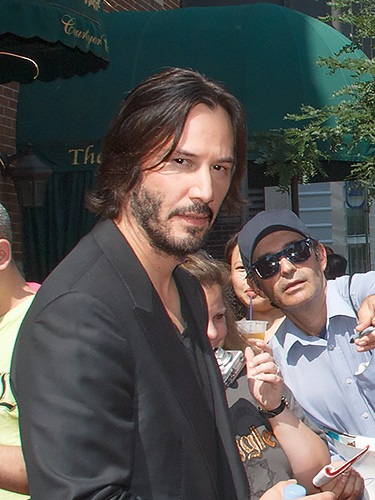
3. **Breaking Free: The Maverick Roles of 1991**
The year 1991 proved to be a pivotal one for Keanu Reeves, showcasing his willingness to push beyond the ‘Bill & Ted’ persona and embrace more challenging, mature roles. He reprised his role as Ted in ‘Bill & Ted’s Bogus Journey’, a sequel that built upon the comedic success of its predecessor. Michael Wilmington of the Los Angeles Times praised the sequel as “more imaginative, more opulent, wilder and freer,” commending the actors for their “fuller” performances. Film critic Roger Ebert echoed this sentiment, calling it “a riot of visual invention and weird humour that works on its chosen sub-moronic level,” acknowledging the film’s unexpected originality.
However, the latter half of 1991 truly marked a significant transition for Reeves’s career as he deliberately sought out adult roles. He co-starred with River Phoenix in the independent drama ‘My Own Private Idaho’, portraying a street hustler on a journey of personal discovery. Written by Gus Van Sant, the story was loosely based on Shakespeare’s Henry IV plays, adding a layer of literary depth. The film premiered at the 48th Venice International Film Festival and earned $6.4 million at the box office, signaling a departure from his previous comedic efforts and a move towards more serious fare.
‘My Own Private Idaho’ was met with a largely positive reception from critics, highlighting Reeves’s growing range. Owen Gleiberman of Entertainment Weekly described it as “a postmodern road movie with a mood of free-floating, trance-like despair,” calling it “a rich, audacious experience.” The New York Times further complimented both Reeves and Phoenix for their insightful and compelling performances, acknowledging their ability to navigate complex characters and themes with nuance. This film cemented his reputation as an actor willing to take risks and delve into darker, more dramatic material.
Later that year, Reeves cemented his action hero status with a leading role in the action thriller ‘Point Break’, directed by Kathryn Bigelow. He starred alongside Patrick Swayze, Lori Petty, and Gary Busey, playing an undercover FBI agent tasked with infiltrating a group of bank-robbing surfers. To fully immerse themselves in their roles, Reeves and his co-stars underwent intense surfing lessons with professional surfer Dennis Jarvis in Hawaii, with Reeves famously having never surfed before. This dedication to physical preparation became a hallmark of his approach to action films.
Upon its release, ‘Point Break’ was generally well-received and proved to be a commercial success, grossing $83.5 million at the box office. Critics lauded Reeves’s performance, with The New York Times praising his “considerable discipline and range,” noting how he moved “easily between the buttoned-down demeanour that suits a police procedural story and the loose-jointed manner of his comic roles.” Hal Hinson, writing for The Washington Post, called Reeves the “perfect choice” for the role, further establishing him as a versatile and compelling presence in the action genre. His rising star was recognized when he won the Most Desirable Male award at the 1992 MTV Movie Awards.

4. **A Musical Detour: The Genesis of Dogstar**
Amidst his burgeoning film career in the early 1990s, Keanu Reeves nurtured another passion: music. In 1991, he channeled this interest into forming an alternative rock band called Dogstar. This venture allowed him to explore a different facet of his artistic expression, demonstrating that his creative ambitions extended beyond the silver screen.
In the band, Reeves took on the role of the bass guitarist, contributing to the group’s sound alongside his bandmates Robert Mailhouse, Gregg Miller, and Bret Domrose. It was a genuine commitment, with the band actively performing and creating music, showcasing a side of Reeves that many audiences might not have immediately associated with the rising film star.
This musical detour wasn’t just a fleeting hobby; it was a significant part of his life for over a decade. Dogstar released two albums during their tenure, ‘Our Little Visionary’ in 1996 and ‘Happy Ending’ in 2000, and even toured. This period allowed Reeves to step away from the relentless demands of acting and engage with a different kind of creative collaboration, proving his multifaceted talents and his desire to follow his artistic impulses wherever they led him.

5. **Gothic Horror and Shakespearean Trials**
Following his breakthrough in action and independent dramas, Reeves continued to diversify his roles, notably venturing into the realm of gothic horror. In 1992, he took on the role of Jonathan Harker in Francis Ford Coppola’s visually stunning ‘Bram Stoker’s Dracula’. Starring alongside heavyweights like Gary Oldman, Winona Ryder, and Anthony Hopkins, the film proved to be a critical and commercial success, grossing an impressive $215.8 million worldwide.
However, his performance in ‘Dracula’ famously drew some ridicule, particularly his attempt at an English accent. Limara Salt of Virgin Media wrote that Reeves’s performance was “Overly posh and entirely ridiculous, Reeves’s performance is as painful as it is hilarious.” Director Coppola, in a retrospective interview in 2015, acknowledged the challenge, stating, “[Reeves] tried so hard… He wanted to do it perfectly and in trying to do it perfectly it came off as stilted.” Despite the accent controversy, the film was highly acclaimed, earning four Academy Award nominations and winning three for Best Costume Design, Best Sound Editing, and Best Makeup.
In 1993, Reeves tackled Shakespeare once more, appearing in Kenneth Branagh’s adaptation of ‘Much Ado About Nothing’. The film itself received positive reviews, a testament to Branagh’s direction and the ensemble cast. His participation in such a renowned literary work further underscored his ambition to explore a wide range of acting opportunities and challenge himself artistically, even within demanding classical texts.
Despite the film’s overall positive reception, Reeves’s performance in ‘Much Ado About Nothing’ was less celebrated, leading to a nomination for a Golden Raspberry Award for Worst Supporting Actor. The New Republic magazine found his casting “unfortunate” due to what they perceived as his “amateur performance.” That same year, he also starred in two other drama films, ‘Even Cowgirls Get the Blues’ and Bernardo Bertolucci’s ‘Little Buddha’. Both garnered mixed-to-negative reception, although The Independent critic found Reeves’s part as a prince in ‘Little Buddha’ to be “credible.” Interestingly, ‘Little Buddha’ left a lasting impression on Reeves, who later remarked, “When I played this innocent prince who starts to suspect something when he has the first revelations about old age, sickness and death, it hit me. … That lesson has never left me,” indicating the profound personal impact some roles had on him, irrespective of critical reception.

6. **The Adrenaline Rush of ‘Speed’ (1994)**
In 1994, Keanu Reeves solidified his status as a bona fide action star with the release of the electrifying thriller ‘Speed’. Starring alongside Sandra Bullock and Dennis Hopper, Reeves played police officer Jack Traven, who must prevent a bus from exploding by keeping its speed above 50 mph. This film marked the impressive directorial debut of Dutch director Jan de Bont, who chose Reeves for the lead role after being impressed by his performance in ‘Point Break’, recognizing his potential for high-octane heroics.
To physically embody the role, Reeves committed fully to the transformation. He shaved off all his hair and dedicated two months to intensive gym workouts to gain muscle mass, showcasing his dedication to authenticity. During the production of ‘Speed’, a personal tragedy struck when his friend and ‘My Own Private Idaho’ co-star, River Phoenix, passed away. The filming schedule had to be adjusted to allow Reeves time to mourn, highlighting the human element behind the glamorous facade of filmmaking.
‘Speed’ was released on June 10 to a critically acclaimed response, with reviewers showering praise on its relentless pace and captivating performances. Gene Siskel of the Chicago Tribune lauded Reeves, calling him “absolutely charismatic… giving a performance juiced with joy as he jumps through elevator shafts… and atop a subway train.” David Ansen, writing for Newsweek, summarized ‘Speed’ perfectly as, “Relentless without being overbearing, this is one likely blockbuster that doesn’t feel too big for its britches. It’s a friendly juggernaut,” capturing the film’s exhilarating yet accessible appeal.
The film was not just a critical darling; it was a commercial powerhouse. From a modest $30 million budget, ‘Speed’ grossed an astounding $350 million, cementing its place as one of the year’s biggest hits. Its success was also recognized at the 1995 Academy Awards, where it won two Oscars for Best Sound Editing and Best Sound. ‘Speed’ undoubtedly became a landmark in Reeves’s career, proving his undeniable charisma and capability as a leading man in the high-stakes action genre, setting him up for even greater challenges to come.
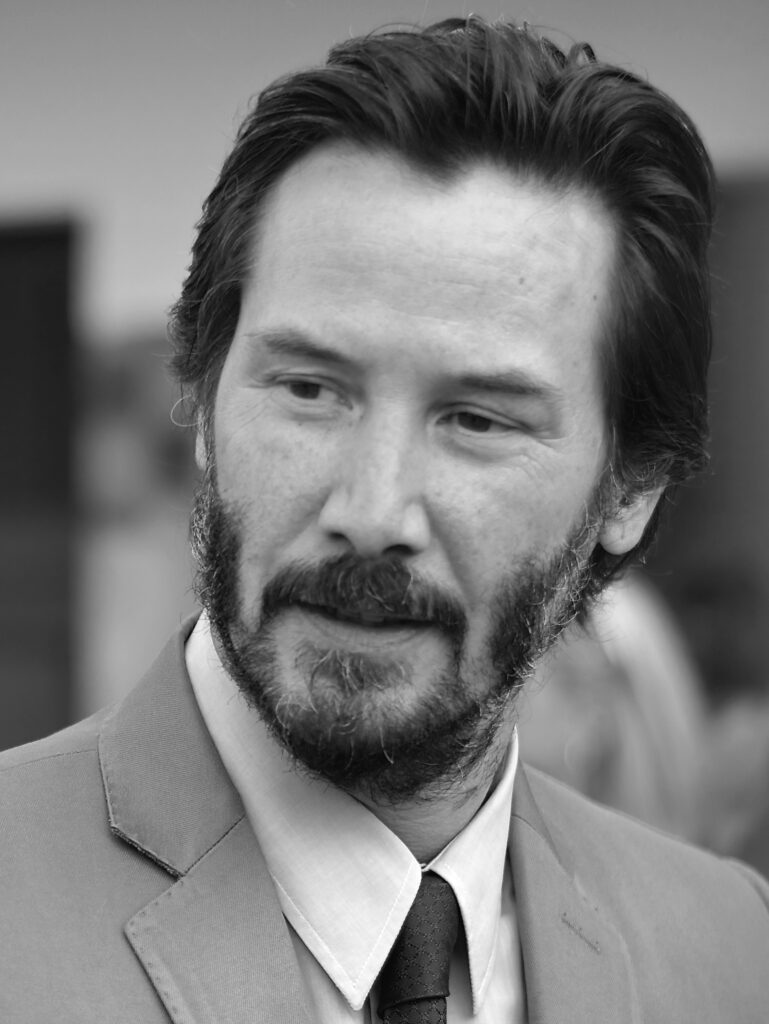
7. **Navigating the Mid-90s: Career Fluctuations and Critical Scrutiny**Following the immense success of ‘Speed’, Reeves’s career trajectory in the mid-1990s presented a mix of ambitious choices and fluctuating critical receptions. His next leading role came in the 1995 cyberpunk action thriller ‘Johnny Mnemonic’, directed by artist Robert Longo and based on William Gibson’s short story. Set in 2021, the film depicted a man with a cybernetic brain implant who had to deliver a data package before a deadly deadline. It was a visually distinct project, but one that struggled to connect with audiences and critics.
Following the immense success of ‘Speed’, Reeves’s career trajectory in the mid-1990s presented a mix of ambitious choices and fluctuating critical receptions. His next leading role came in the 1995 cyberpunk action thriller ‘Johnny Mnemonic’, directed by artist Robert Longo and based on William Gibson’s short story. Set in 2021, the film depicted a man with a cybernetic brain implant who had to deliver a data package before a deadly deadline. It was a visually distinct project, but one that struggled to connect with audiences and critics.
‘Johnny Mnemonic’ primarily received negative reviews, with many critics feeling Reeves was “woefully miscast.” Roger Ebert famously opined that the film was one of the “great goofy gestures of recent cinema, a movie that doesn’t deserve one nanosecond of serious analysis but has a kind of idiotic grandeur that makes you almost forgive it.” This marked a period where the high-flying success of ‘Speed’ was not immediately replicated, demonstrating the unpredictable nature of Hollywood.
He then appeared in the romantic drama ‘A Walk in the Clouds’ (1995), which also garnered mixed-to-negative reviews. While film critic Mick LaSalle appreciated it as “for the most part a beautiful, well-acted and emotionally rich picture,” Hal Hinson from The Washington Post was less impressed, saying, “The film has the syrupy, Kodak magic-moment look of a Bo Derek movie, and pretty much the same level of substance.” These varied responses indicated that Reeves was still searching for roles that consistently resonated with both critics and audiences, proving his journey was far from linear.
Beyond film work, Reeves briefly retreated to the theatre, taking on the iconic role of Prince Hamlet in a 1995 Manitoba Theatre Centre production in Winnipeg. His stage performance garnered significant praise, with The Sunday Times critic Roger Lewis declaring, “He is one of the top three Hamlets I have seen, for a simple reason: he is Hamlet.” This critical triumph in classical theatre highlighted his range and commitment to acting, even as his film choices faced mixed fortunes, reminding everyone of the depth of his acting ambitions.
In 1996, Reeves was drawn back to science fiction, appearing in ‘Chain Reaction’ with co-stars Morgan Freeman and Rachel Weisz. He played a researcher framed for murder, forced to go on the run. This film also gained a mostly negative reaction, described by Rotten Tomatoes as “a man-on-the-run thriller that mostly sticks to generic formula.” His subsequent film, the independent crime comedy ‘Feeling Minnesota’, was similarly described as “shoddily assembled, and fundamentally miscast.” A significant career decision during this time was turning down a $12 million offer to star in ‘Speed 2: Cruise Control’. Reeves later revealed this decision led 20th Century Fox to sever ties with him for a decade, illustrating the business repercussions of artistic choices. Instead, he toured with his band Dogstar and appeared in the drama ‘The Last Time I Committed Suicide’ (1997), which received mixed reviews for his performance. However, a turning point arrived with the supernatural horror ‘The Devil’s Advocate’ (1997) alongside Al Pacino and Charlize Theron. Reeves famously agreed to a pay cut so the studio could afford Pacino, and the film attracted positive reviews, with James Berardinelli calling it “highly enjoyable” and Reeves’s portrayal a “solid job,” signaling a crucial rebound as the decade drew to a close.
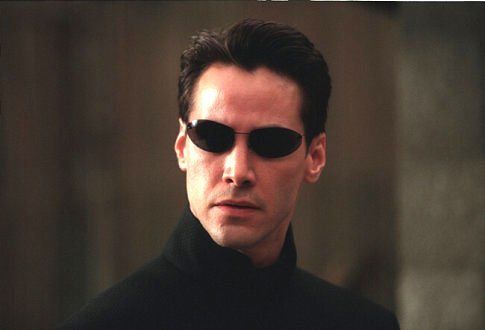
8. **The Quantum Leap: ‘The Matrix’ Era (1999-2004)**
Keanu Reeves stepped into a new dimension entirely with the groundbreaking 1999 science fiction film *The Matrix*, forever solidifying his place in cinematic history. As computer programmer Thomas Anderson, who transformed into the iconic hacker Neo, he plunged audiences into a simulated reality controlled by machines, sparking a global phenomenon. This role redefined the genre and showcased Reeves’s ability to embody a complex hero with both stoicism and vulnerability.
Preparing for *The Matrix* demanded months of intense training with martial arts choreographer Yuen Woo-ping. His dedication to physical mastery was evident in every gravity-defying fight scene, setting a new benchmark for action sequences. Critics praised its cinematic vision, with *The New York Times* crediting Reeves for being a “strikingly chic Prada model of an action hero.” The film’s monumental success, earning four Academy Awards, spawned a franchise that cemented Reeves as one of the highest-paid actors for its 2003 sequels, *The Matrix Reloaded* and *The Matrix Revolutions*.
During this period, Keanu balanced blockbusters with more personal projects, even taking pay cuts for films like *The Devil’s Advocate* and *The Replacements* to afford esteemed co-stars. He navigated challenges, such as being compelled to appear in the critically panned thriller *The Watcher*. Other diverse choices included the romantic drama *Sweet November* and the acclaimed romantic comedy *Something’s Gotta Give*, showing his continuous artistic range.

9. **A Decade of Diversification: Thrillers, Documentaries, and Directing (2005-2013)**
The post-Matrix era saw Keanu Reeves exploring a fascinating array of projects, demonstrating a deep curiosity for diverse genres. In 2005, he delved into the occult with *Constantine*, a respectable box office hit. He also took on more introspective roles in the critically praised *Thumbsucker* and the visually unique animated science fiction thriller *A Scanner Darkly*, showcasing his willingness to experiment with form.
Reuniting with Sandra Bullock in *The Lake House* brought commercial success, despite harsh critical reception. He also co-narrated *The Great Warming*, a documentary about climate change, revealing his engagement with global issues. Despite commercial and critical challenges with films like *Street Kings* and *The Day the Earth Stood Still*, Reeves continued pushing boundaries, co-authoring the adult picture book *Ode to Happiness* in 2011 with Alexandra Grant.
A significant endeavor was his move behind the camera. In 2012, he co-produced and appeared in the acclaimed documentary *Side by Side*. The following year, 2013, marked his directorial debut with the martial arts film *Man of Tai Chi*. This passion project premiered to praise for its “beautifully assembled” fight sequences, demonstrating Reeves’s capabilities as a director despite its commercial disappointment. His final release of 2013, the fantasy *47 Ronin*, proved to be a major box office flop.
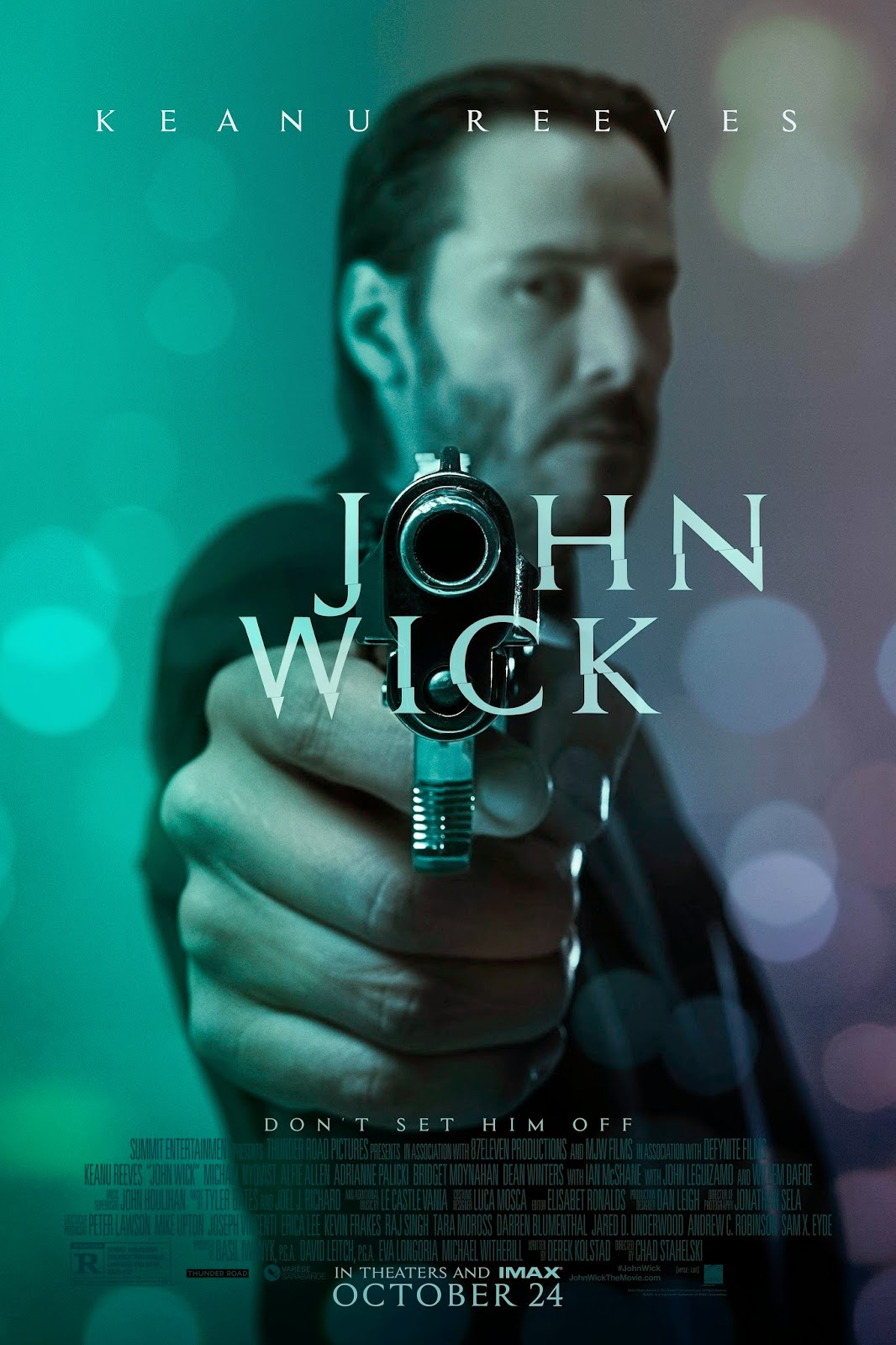
10. **The Unstoppable Assassin: ‘John Wick’ Resurgence (2014-2017)**
After a period of varied commercial success, Keanu Reeves exploded back onto the scene in 2014 with *John Wick*, a stylish, brutal, and effective action thriller that heralded a true career resurgence. Playing the titular retired hitman seeking vengeance, Reeves once again proved his unparalleled ability to embody an iconic action hero. He was deeply involved in the project’s development, emphasizing the importance of the “whole story, the whole ensemble.”
*John Wick* wasn’t just a hit; it was a cultural phenomenon that revitalized the action genre with intricate “gun-fu” choreography. *The Hollywood Reporter* lauded the director’s “confident, muscular action debut” and Reeves’s “effortless” performance, marking a triumphant return. *The New York Times* praised his fight scenes, noting he is “always more comfortable in roles that demand cool over hot, attitude over emotion.” The film grossed $86 million worldwide, exceeding expectations.
This momentum continued with *John Wick: Chapter 2* in 2017, which further expanded the intricate world of assassins. The sequel proved an even greater critical and commercial success, nearly doubling its predecessor’s box office. Chris Hewitt of *Empire* magazine celebrated Reeves’s performance, drawing parallels to his earlier triumphs in *Point Break* and *Speed*. Amidst these blockbusters, Reeves continued dabbling in diverse projects, from the horror remake *Knock Knock* to voice roles in comedy and sensitive dramas like *To the Bone*, illustrating his continuous artistic exploration.
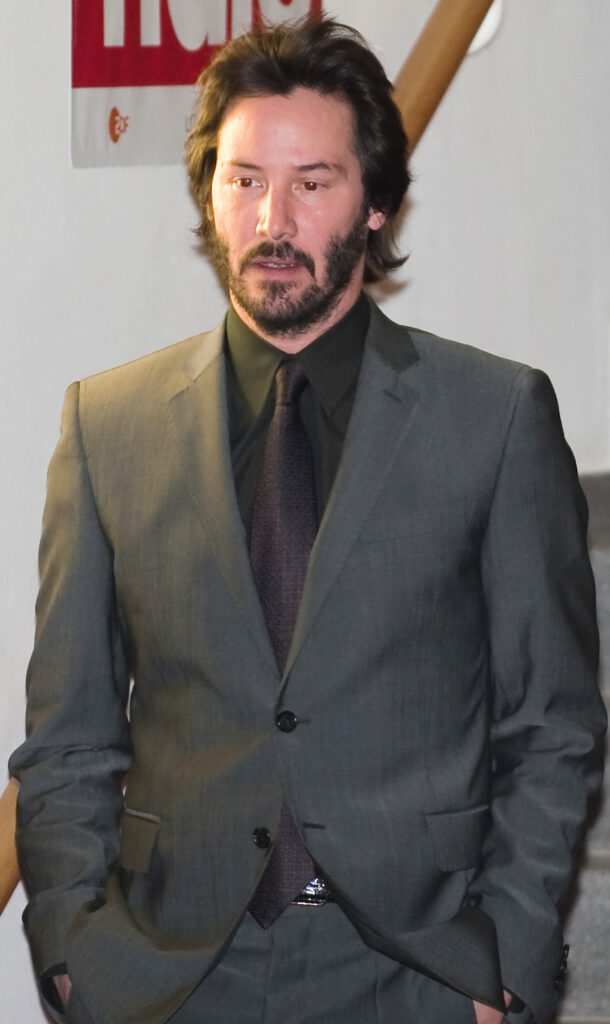
11. **Beyond the Wick-verse: Creative Ventures and Voice Work (2018-2022)**
The latter half of the 2010s and early 2020s saw Keanu Reeves not only continuing his reign as an action hero but also broadening his creative scope into highly anticipated voice roles and revisiting cherished franchises. The *John Wick* saga continued its relentless march with *John Wick: Chapter 3 – Parabellum* in 2019, further cementing its place as a modern action classic and proving the franchise’s formidable staying power.
Beyond John Wick, Reeves surprised and delighted audiences with his versatile voice acting. He charmed millions as the delightfully enthusiastic Duke Caboom in Disney/Pixar’s *Toy Story 4* (2019), a role that perfectly captured his endearing persona. This was followed by his iconic portrayal of Johnny Silverhand in the highly anticipated video game *Cyberpunk 2077* (2020), a role that thrilled gamers and showcased his ability to inhabit digital characters with depth.
This period also saw Keanu Reeves revisit two of his most beloved roles. In 2020, he reunited with Alex Winter for *Bill & Ted Face the Music*, a long-awaited sequel that brought back the beloved slacker duo. Then, in 2021, he reprised his career-defining role as Neo in *The Matrix: Resurrections*. These diverse choices highlight his consistent drive to take on different kinds of stories, continuously demonstrating his dedication to the craft and his connection with his most iconic characters.

12. **The Renaissance Continues: Music, Comics, and Future Horizons (2023-Present)**\
As Keanu Reeves transitioned into the mid-2020s, his creative spirit showed no signs of slowing down, branching out into new and exciting artistic avenues while also revisiting cherished passions. A decade after their initial disbandment, his alternative rock band, Dogstar, made a triumphant return with a new album, *Somewhere Between the Power Lines and Palm Trees*, in 2023. This reunion was a delightful surprise, reminding everyone of Reeves’s long-standing love for music beyond acting.
His entrepreneurial and creative endeavors don’t stop there. Reeves has also plunged headfirst into the world of comic books, co-creating and co-writing the critically acclaimed *BRZRKR* franchise, which launched its original comic book series from 2021–2023. This violent, action-packed narrative about an immortal warrior has been a massive success, proving Reeves’s prowess as a storyteller in a new medium. The franchise has since expanded, with numerous spin-offs, including *The Book of Elsewhere* in 2024.
Looking ahead, Reeves continues to add fascinating roles to his resume. In 2024, he is set to lend his distinctive voice to the iconic character of Shadow the Hedgehog in *Sonic the Hedgehog 3*, further expanding his impressive repertoire of voice acting. This ongoing commitment to diverse projects, from films and games to music and comics, showcases an artist who is continually evolving, eager to explore new challenges, and deeply invested in creative collaboration.

13. **The Entrepreneur: Arch Motorcycle and Company Films**
Beyond his undeniable talent on screen and in other creative fields, Keanu Reeves has also proven himself to be a savvy and passionate entrepreneur. A lifelong and avid motorcyclist, Reeves transformed his personal passion into a thriving enterprise by co-founding ARCH Motorcycle. This custom manufacturer isn’t just a vanity project; it’s a testament to his dedication to craftsmanship and design, producing high-performance, bespoke motorcycles that reflect his personal aesthetic and commitment to excellence.
His involvement with ARCH Motorcycle goes far beyond mere endorsement. Reeves is deeply involved in the design and development process, working closely with his co-founder to create machines that are as beautiful as they are powerful. This hands-on approach reflects his meticulous nature and his desire to bring quality and authenticity to every project he undertakes, whether film or custom-built motorcycle, truly an extension of his personality.
In addition to custom vehicle manufacturing, Reeves also co-founded Company Films, a production company. This venture allows him greater control over the types of stories he brings to the screen, fostering projects that align with his artistic sensibilities and vision. It further underscores his desire to be involved in the creation process from the ground up, moving beyond being an actor for hire to being a true architect of cinematic experiences.
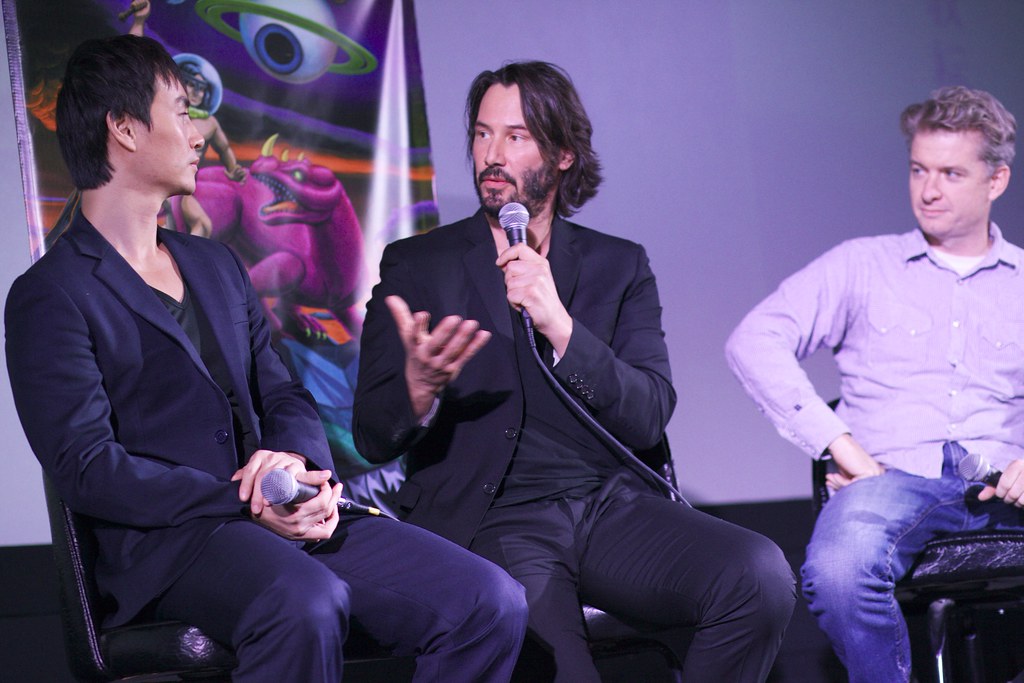
14. **The Quiet Philanthropist: A Heart of Gold**
One of the most defining, yet often understated, aspects of Keanu Reeves’s public persona is his genuine and unwavering philanthropic spirit. While he rarely publicizes his charitable acts, numerous instances have surfaced that paint a picture of an incredibly generous and compassionate individual. This quiet approach to giving back speaks volumes about his character, suggesting a man who seeks to make a positive impact without seeking personal accolades.
His generosity isn’t just about monetary donations; it’s often reflected in his willingness to make personal sacrifices for the greater good of a project or his colleagues. A prime example is his decision to take pay cuts on films like *The Devil’s Advocate* and *The Replacements* to allow the studio to afford esteemed co-stars. These choices, while strategic business decisions, reveal a profound team player mentality and a belief that the success of the collective outweighs individual gain.
Beyond film sets, Reeves has been linked to various charitable causes, though he prefers to keep many contributions private. His amiable public image and universal affection often stem from these genuine acts of kindness, whether treating film crews with respect or simply demonstrating humility. These consistent gestures contribute to his reputation as one of Hollywood’s truly good guys, someone whose thoughtfulness is as celebrated as his on-screen heroics.
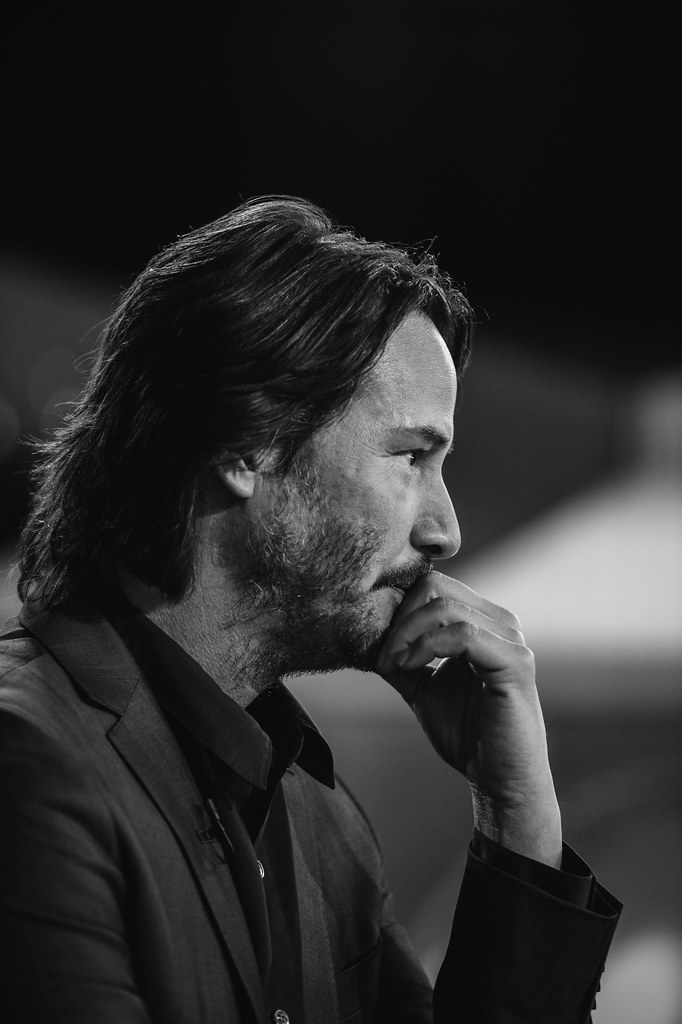
15. **An Enduring Icon: Impact and Legacy**
Four decades into his illustrious career, Keanu Reeves stands not just as a beloved actor, but as an enduring cultural icon whose impact resonates globally. His journey, marked by monumental successes and setbacks, has forged a persona defined by enigmatic charm, remarkable resilience, and profound humility. He has mastered the art of reinvention, consistently captivating audiences with his unique blend of stoicism and warmth.
Reeves’s universal affection stems from his consistent ability to deliver memorable performances across diverse genres, from the philosophical depths of *The Matrix* to the visceral action of *John Wick*. He has become synonymous with characters embodying integrity and quiet strength, creating a powerful connection with viewers who find him both aspirational and relatable. His amiable public image, free from usual celebrity controversies, further solidifies his status as a rare and cherished figure in popular culture.
The recognition of his enduring influence extends to the highest echelons of media. In 2020, *The New York Times* ranked him as the fourth-greatest actor of the 21st century. Two years later, in 2022, *Time* magazine named him one of the 100 most influential people in the world. These accolades acknowledge the totality of his impact – his art, his character, his business ventures, and his quiet benevolence. His career is a powerful narrative of passion, perseverance, and genuine humanity.
Read more about: Meryl Streep at 75: Peering into the Hollywood Doyenne’s Timeless Performances and Enduring Influence
As we conclude this deep dive into the extraordinary life and career of Keanu Reeves, it’s clear his story is far from over. From his early days navigating a multicultural upbringing to becoming a global icon who consistently reinvents himself, he embodies a rare blend of artistic ambition, personal integrity, and profound generosity. His journey reminds us that true stardom is about more than just talent; it’s about character, resilience, and an unwavering commitment to both craft and humanity. Keanu Reeves doesn’t just play heroes; he lives like one, continuing to enrich the world one thoughtful act and captivating performance at a time.



